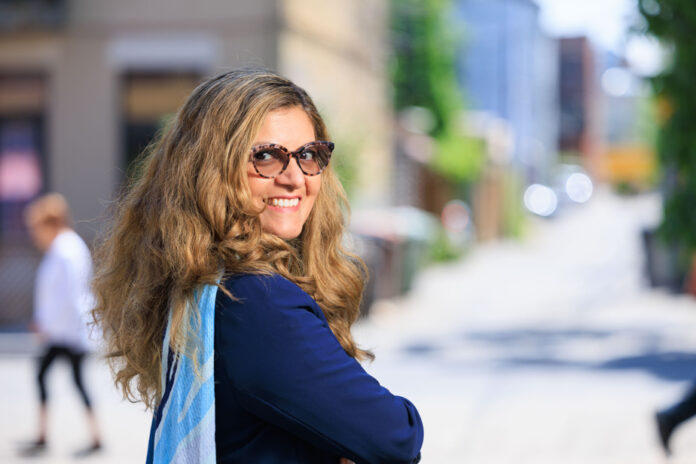Shot in Montreal, which is beautifully showcased here, Montreal Girls, fresh from the Cannes Film Festival film market, features mostly diverse actors, led by a Salvadoran-born filmmaker, Patricia Chica. In short, it’s “the other Montreal”, which we see so little in the cinema, and which will be on the big screen on Friday.
The whole story that led to the making of this film perfectly sums up the international dimension of Patricia Chica, who co-wrote this screenplay featuring a young boy from North Africa who leaves his country to study medicine in Montreal.
The basic idea was submitted to her by an Egyptian friend, Kamal Iskander, her neighbor in Los Angeles when she lived there part-time. He co-wrote the screenplay with her.
“I appropriated the idea to the point where this story became my coming of age, says Patricia Chica, because I too come from a traditional family where I had to fight to make films. The filmmaker therefore told the story in a way that reflected her own experience of emancipation.
He is Hakim Brahimi. A young Montrealer by adoption, of Algerian origin, who had no acting experience.
Patricia Chica spotted him on Instagram. “I saw the prudish and vulnerable side that Ramy’s character must have had. Hakim was studying engineering, he was 22 years old. I met him, I did acting workshops with the other actors, but he wasn’t ready yet… So I offered to accompany him to train him, “says the director.
Patricia took him under her wing for a year, drawing inspiration from a method based on Chi energy. “It’s a method where you use meditation and visualization to be in the same energy as the other. It helped us a lot to work in this way with the actors of the film because we shot in the midst of the COVID-19 crisis, with all the health restrictions. »
The character of Ramy, destined to study medicine after the death of his mother, nevertheless has literary aspirations. Installed with his uncle Hani (Manuel Tadros), he will hang out with the Montreal underground scene with his cousin Tamer (Jade Hassouné) and will meet two rather sassy girls, Désirée (Jasmina Parent) and Yaz (Sana will shake up his career and cause him to question himself deeply.
The film, which has been in the works for nearly 10 years, hit theaters in the United States on June 1 and hits our screens on June 9. A victory in itself for the filmmaker, who signs here her first feature film, after having released several shorts and documentaries.
This appellation of “Montreal Girls” suggests that the girls of Montreal are easy… Was that what the filmmaker meant?
“Not all the girls in Montreal are like the ones in the movie, but we’re reappropriating this stereotype of easy girls that a lot of foreigners associate with girls from here, to represent girls who are certainly attractive and open-minded, but which also have substance, depth and a spiritual meaning, like Désirée.
The character of Ramy, who has just arrived in Montreal, speaks English, his second language. Patricia Chica did not want to betray this reality. This means that his interactions take place in the language of Shakespeare. Does the filmmaker fear the audience’s reaction? “I think it might shake him up, but you have to remember that I’m telling the story from the point of view of a foreigner who doesn’t speak French. English is the default movie language, not by choice. »
Nevertheless, the representation of diversity on the big screen, in a film camped in Montreal – in the streets of the Plateau and the Mile End – by a female filmmaker herself of immigrant origin, all of this remains quite rare in the Quebec ecosystem. We think of the director of Turkish origin Onur Karaman (Breathe, The culprit), but the list is short… Patricia Chica is aware of it.
“I love Montreal, it’s my city,” the filmmaker tells us.
“Are people ready for this?” In any case, it will change the dialogue on cinema here, she continues. But it is a Quebec film, made with actors and artisans from Quebec. »
Patricia Chica is now on a roll. She is working on three feature film projects, all of which will be shot in Montreal. The most advanced bears the title of Brotherman. “This is the story of a young Angolan refugee who arrived in Canada after fleeing war and seeing his mother murdered,” the filmmaker tells us. He was adopted by an immigration agent and became an elite runner. We transposed the story to Montreal even if he had arrived in Vancouver. The screenplay was written by a Canadian of Iranian origin, Hedyeh Bozorgzadeh. I think it’s going to be a great movie. »








